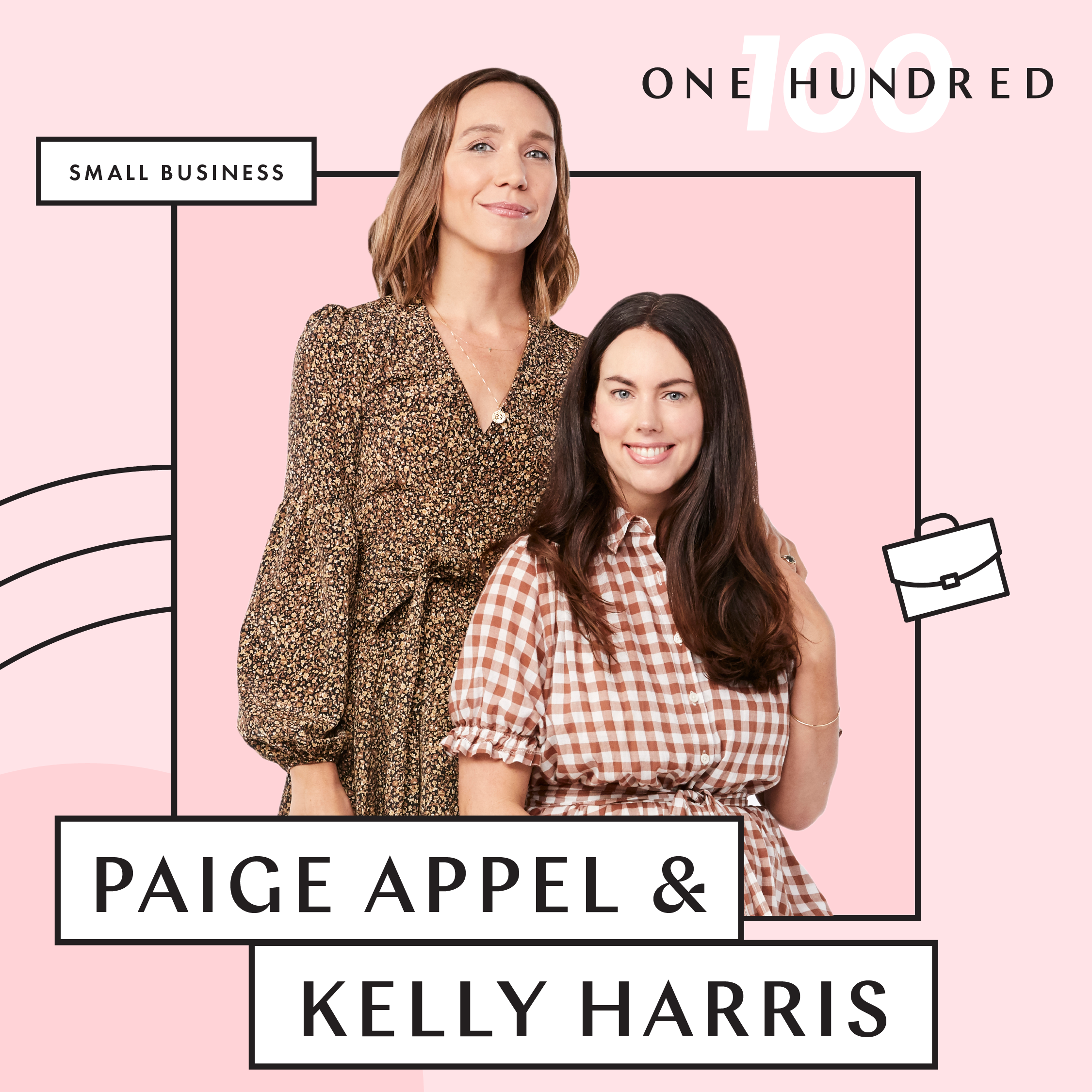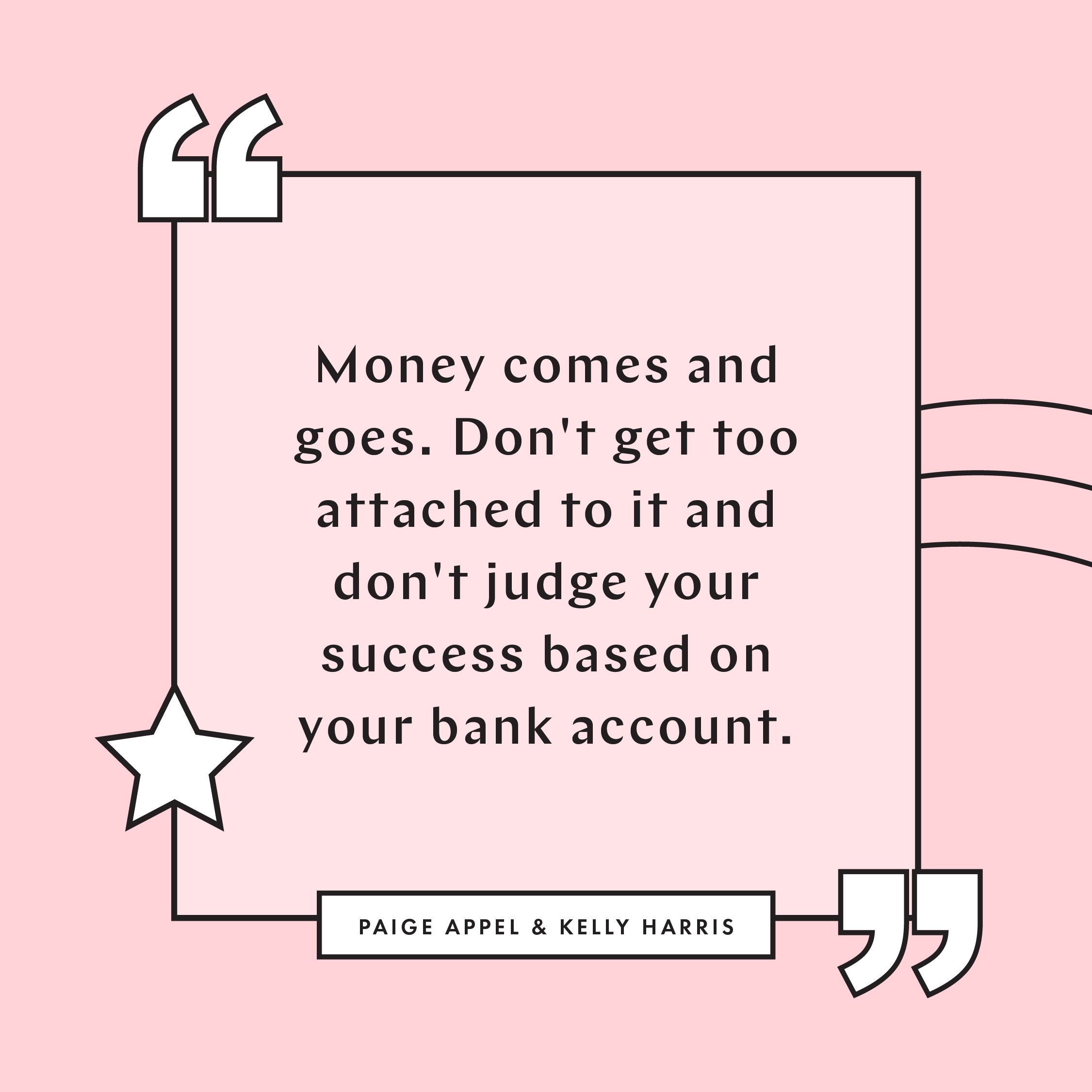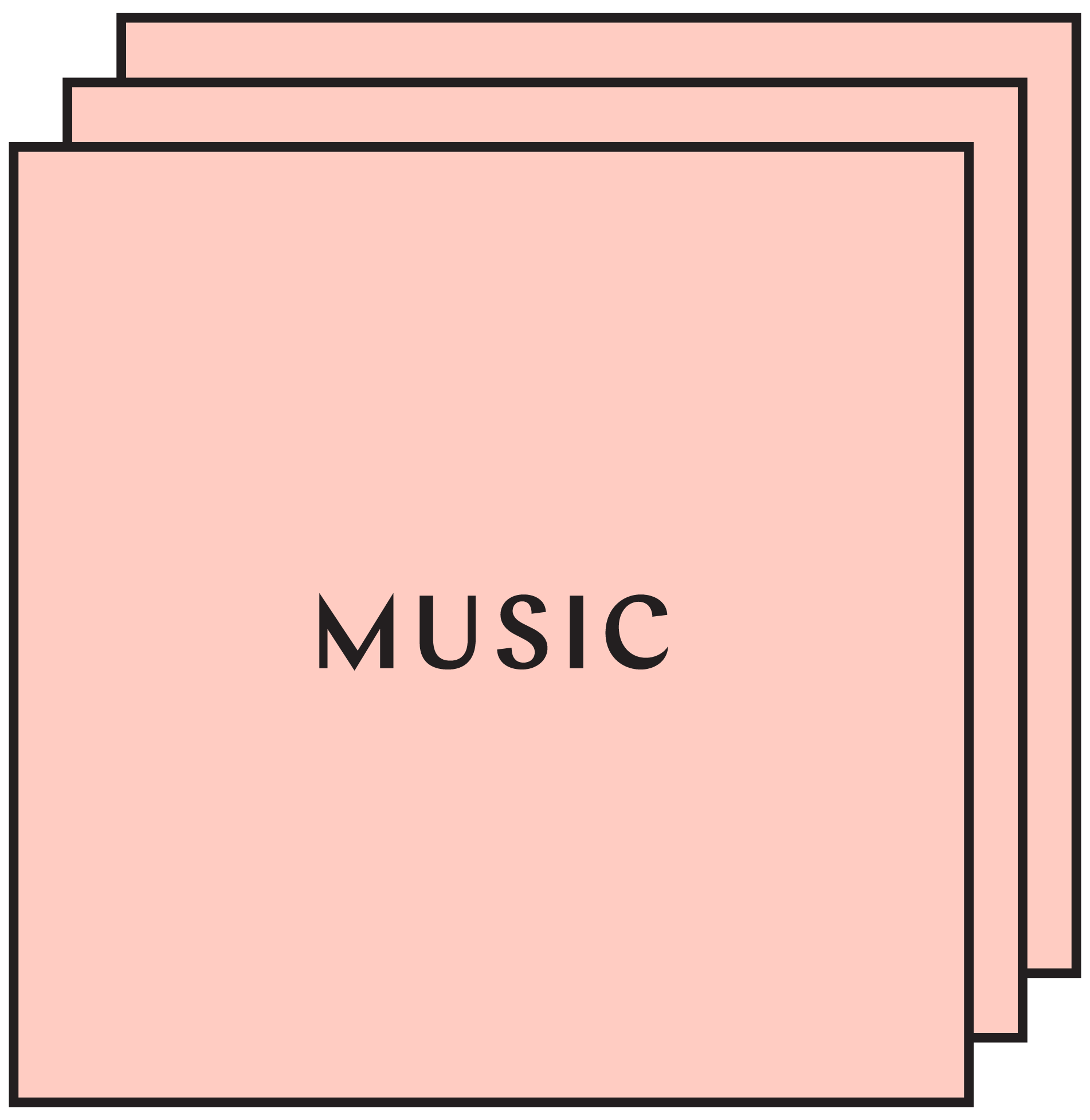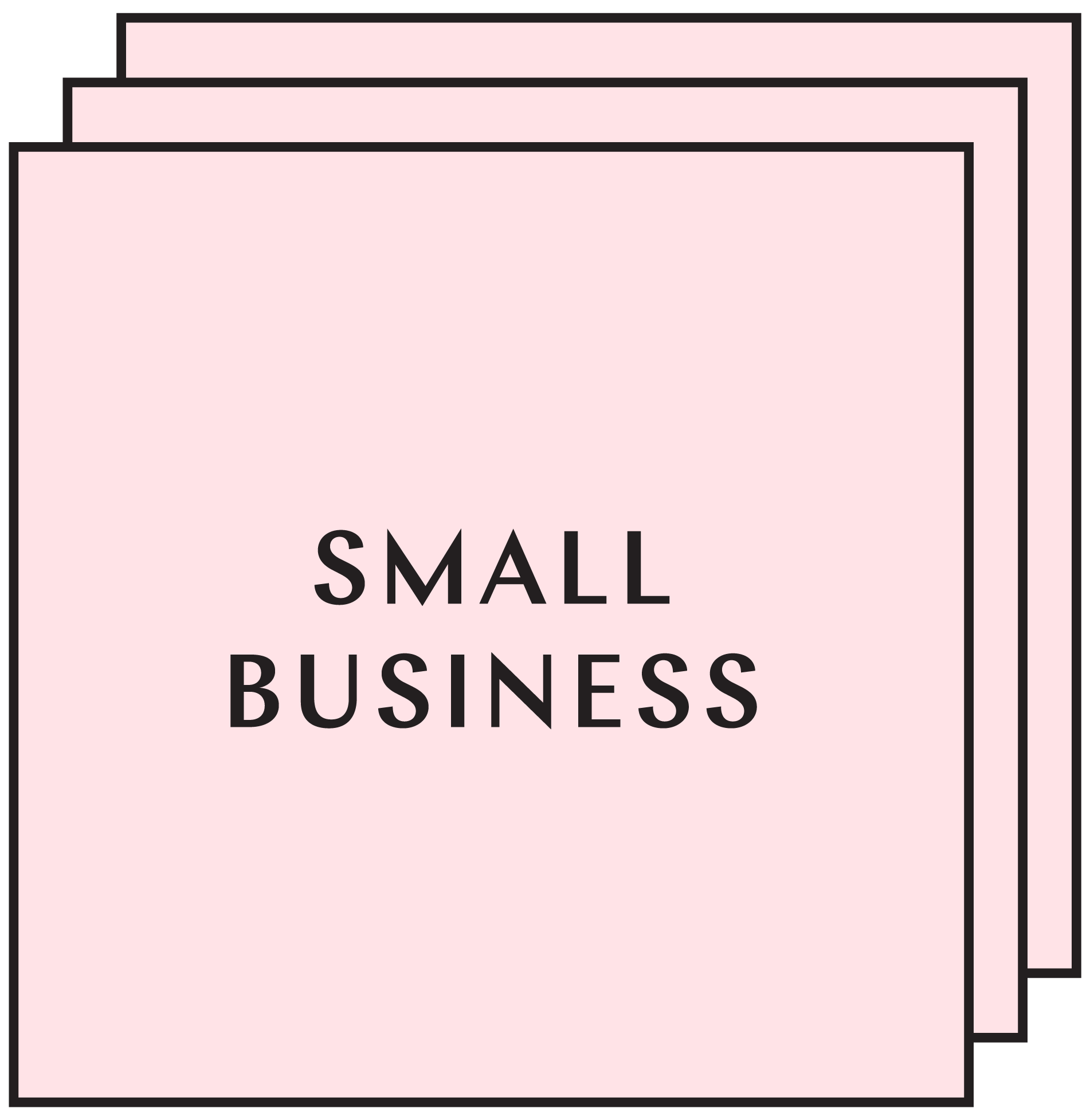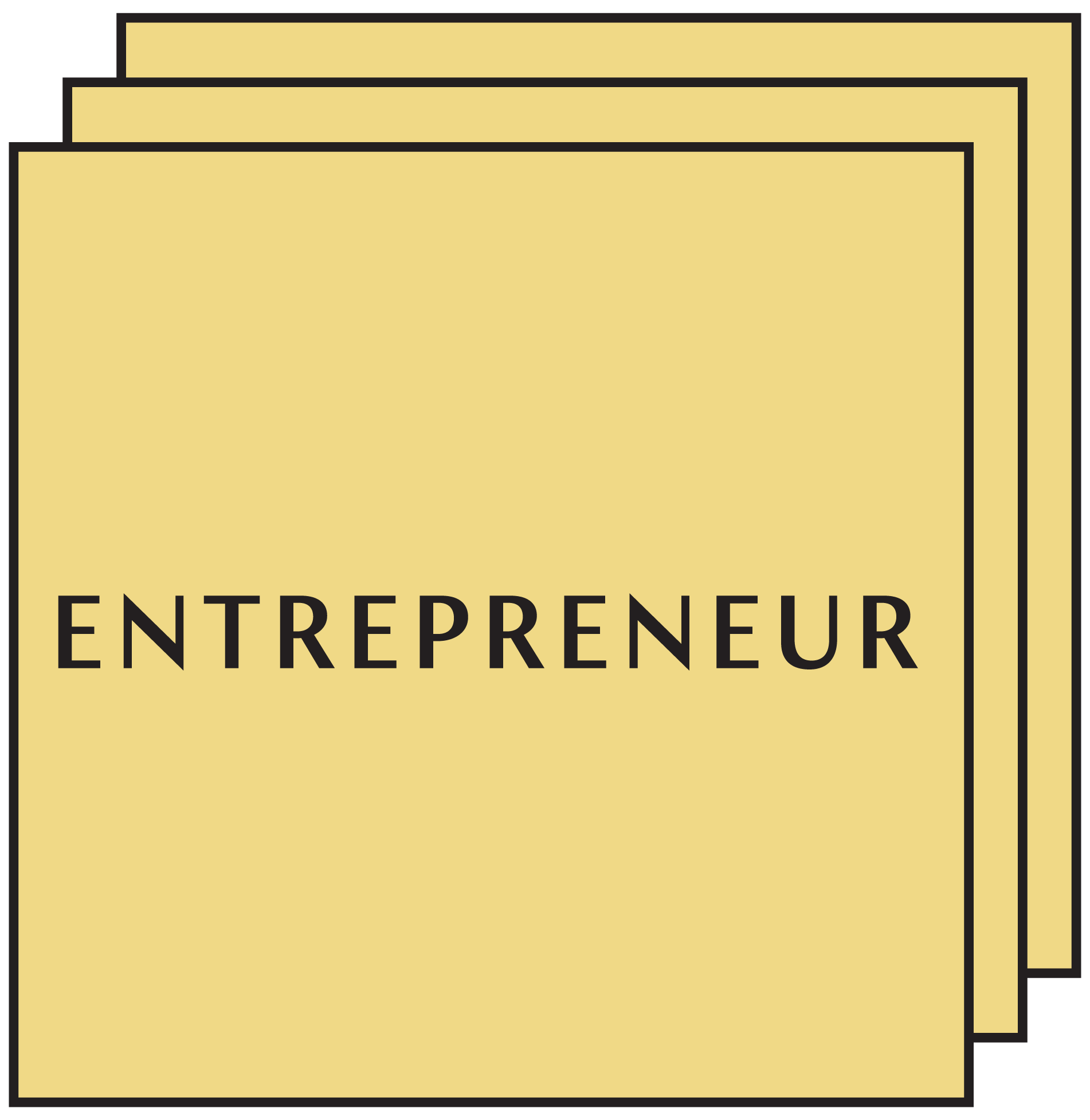At a time when e-commerce is on the rise and big chains and small mom-and-pop shops alike are going out of business, Paige Appel and Kelly Harris are reinventing the brick-and-mortar retail game. With their inspired Los Angeles-based shop, Midland, the creative team is bringing back the nostalgia of in-person shopping—all while supporting local artisans while curating an inventory of covetable finds in the process. (And ICYWW, you can count industry heavy-weights by the likes of Emily Henderson, Amber Lewis, and Sarah Sherman Samuel as fans.)
But before Appel and Harris were disrupting retail, they were running their own event production company, Bash Please, which they sold in late 2016. (Yes, the pair have been best friends since their 20s). Talk about a major pivot, but the pair haven’t looked back and are looking at expanding into more retail locations in 2020. Ahead, the dynamic duo fills C&C in on the marketing tools and strategies they’ve used to successfully (and organically) grow their business and the advice they’d give to young entrepreneurs who have a great idea but don’t know where to start on executing it.
CREATE & CULTIVATE: Your early careers were in the film industry and advertising—but you also started an event production company called Bash Please in 2009 which you later sold. How have these careers informed your new roles as founders? What skill sets have you carried over? Why?
PAIGE APPEL & KELLY HARRIS: Working in film and advertising in our 20s was much like grad school for the job of life. Those careers shaped our historical and aesthetic points of view as well as toughened us up in the Los Angeles creative hustle. Working from a strong foundation helped us become successful in the event production business quickly and we had a book deal before we even had enough events to really showcase. That business grew from a hobby to a full-fledged operation quickly which is what really prepared and launched us as female founders.
We always said that producing an event was like producing a movie with only one take. There aren't directives such as "cut" and "take 5" and "reset". It's go-time and everything has to be perfect and smooth. You can't tell a bride to stop and go back down the aisle because the quartet missed a note. So in that way, our first company really prepared us for the worst-case scenario, to be on top of every nuanced detail, and to learn how to manage all personality types. It was the Master’s program of life. If anyone needs a well-rounded education, go work in events.
Being a founder is never a smooth path. What are some of the biggest lessons you've learned through the process of starting Midland? What have been the biggest challenges? Why?
One of the biggest lessons we've learned since starting Midland is that retail is an ever-changing organism. Keeping up with the demand to have new items in-store for the regular customer while also staying true to our original vendors is creative and challenging. We’re constantly asking ourselves, “What will be the long game win? What makes a good retail shop stay in business? Why do we go back to certain shops? Beyond the social media game and the lure to fast and cheap fashion, how can we be sustainable financially and ethically?”
We want to offer beauty and quality with a distinct aesthetic while still being approachable and not pretentious. Reaching that customer requires constant analysis and marketing. We live in a time where big chain stores and small mom-and-pop shops are going out of business, so planting our feet in the grounded reality that this is not a guaranteed place to thrive. It does require our attention and our passion which keeps us interested and working on refining our customer's experience and searching for the goods that really speak to us and not just what is popular at the moment.
“All entrepreneurs have set-backs and mountains to climb. Ask for help. Use your community resources. Stay humble and be right where you’re at.”
When you hit a bump or hurdle in your career, how do you #FindNewRoads + switch gears to find success?
Hurdles are inevitable as an entrepreneur. If you look at them as opportunities to shift and grow, they can be your biggest helpers in achieving success. We are lucky to have each other to bounce ideas off of, encourage each other's talents, take on different roles, give each other a break, and allow space for a different point of view. We often take a day to "deep dive" on all things working and not working in the business, and if there is a problem, we take a little time to spin out and vent and curse and purge our fears and then re-center ourselves and tackle it the best way we know-how. It's important to allow yourself that moment or hour or day to expel the negative feelings about the bump in the road so it doesn't wreak more havoc.
Then we switch gears, and if we can't get over it, we ask someone more seasoned than us. Asking for help, tapping into our community of knowledgeable entrepreneurs, and looking for someone smarter than us to guide, have all been essential ways of evolving and learning. We’d highly encourage anyone starting a business to look for opinions and data from other people. Also, don't get too stuck in one path. With three careers behind us, we don't look at an endeavor as the "one that has to work." If something isn't working or maybe it is working but you want to switch gears, find a way to do it. Fluidity creates freedom and if you feel trapped in a job, you will be unhappy and that business won't prosper.
You operate both online and brick-and-mortar retail stores, what have been the hardest parts about running retail? Why did you decide to launch physical stores? Would you recommend it?
We believe in a sensory experience. You can't really get that online. You can't touch or smell or even see the details when buying something from a website. You don't interact with a human being. You don't engage with a piece. It's a flat experience. We want our customers to come in and feel like they encountered something special and rare. 75% of our customers walk in and say, "What is that smell? I want it!" They feel the worn concrete floors, they see the oil-stained spruce shelves, they rest in the leather window seat, they touch the hay in the Japanese stucco wall, they ask about the dried flowers on display, they hum along to the Patsy Cline song on the Midland playlist. It's a vibe and we ourselves love to just be in the shop with it.
The hardest part about retail is getting people into the shop to fall in love with a piece of pottery. A certain fragrance. A linen shirt. A Mexican cookbook. A vintage record. Nowadays, people look for the ease and immediacy of online shopping and we understand that to some degree, but it's a limited experience. We send them a little scent and some dried flowers when they shop online with us, but we really hope our customers can come in and hold the carved stone Zuni Owl fetish and feel it's medicine. Or spray our signature sweet hay and palo santo scent. When a customer comes alive in our shop and a maker is ecstatic to be a part of the roster, that's what makes us feel we are doing something good for the soul. It truly makes us happy to support good people making intentional products and to collaborate and buy from people of indigenous cultures. And we recommend any job that makes someone happy and supports a creative, working person's livelihood.
We read that you met via Twitter, is that true? How have you turned a friendship into a working relationship? What's the secret to making that work? Would you recommend it? What advice can you share?
The good old days of Twitter! Before Instagram was the way. We were both working on our hobby careers—post-film and advertising—and some blogs had published our work. Paige reached out to Kelly via twitter to meet up for coffee and work on a project. After three canceled meetings, they met up at Bloom Cafe on Pico and hit it off instantly. After working together on three events, we agreed we were better together and merged companies.
We highly recommend having your best friend as your business partner! It has worked so well for us and we continue to evolve in both roles. We get asked this question a lot, “What’s the secret to being best friends and business partners?” We honestly just work well together and really like each other. It's a marriage. Honesty, trust, and commitment to what's best for each other and the business is key. Talking through the arguments, being vulnerable, and respecting each other's way. Having no ego and letting the other person shine when they deserve it. Knowing who's strengths should lead and when to take a back seat. Trusting each other and keeping each other in a safe space to be ourselves. Pushing each other to be better. It's a complex and beautiful relationship. It's dharmic to be in this work together. Feels every essential to our selves to be partners.
You've achieved so much success since launch. What do you wish you could go back and tell yourself when you were first starting out? Why?
To always meditate before going to work! We really believe that if we operated from a centered and calm place before making any decisions or dealing with any human beings, our work in this world would be clearer and more connected to all of the success. Sometimes, something that is making money can leave fragments of yourself and others behind. We felt this way quite a bit with our event company. Casualties of our family relationships, employees, clients, etc. because we were operating from an overly ambitious, often fearful place that wasn’t always in line with our soul work. Recalibrating our intentions makes the work and the partnership much richer and kinder to ourselves and to all around us. That vibration we hope spreads wider than the Los Angeles hustle that can grind away at being present and not comparing ourselves to what others are doing.
When you're a small business you have to fall in love with the numbers. What have been some of the hardest money lessons you've learned along the way? What is your #1 money tip for small business owners? Why?
Money comes and goes. Don't get too attached to it and don't judge your success based on your bank account. A lesson we learned and value is that money spent on team building, taking care of our employees, giving to a charity, supporting an up and coming artist, are all things that seem luxurious but are actually essential to creating wealth in your community and in your soul. Allocating money to support the greater good of humanity benefits your own business in intention and in conscious. Don't complicate your accounting. Simple spreadsheets (thank god for Google Docs) and a good bookkeeper will keep you stress-free.
Creating buzz so people know about your brand/shop can be challenging for small businesses. How do you market your business? How are people aware of your business? What are some unique social/marketing tools you've used to grow Midland organically?
Tapping into our community and asking for help on social media is key these days. People organically post photos from the shop and in our clothes but also we also reach out to influencers and ask if they will post if it makes sense. Cross-promotion increases visibility and that's really what it's about with online marketing. It's a saturated world of images nowadays so staying active in people's feed is key without being obnoxious and over-posting. Hosting pop-ups with designers and makers in-store where customers can get a custom and in-person meeting with them has worked really well. Carrying goods that people are drawn to and love is the best marketing. Word of mouth will always be a tried-and-true way to increase your growth. If someone has a good experience, they will tell others.
“Word of mouth will always be a tried-and-true way to increase your growth. If someone has a good experience, they will tell others.”
Your store is really popular, which is great, but it also means you're very busy. What are your productivity hacks to get it all done? What three apps or sites do you use every day to help keep you organized and on track?
Productivity hacks! We love that phrase. Definitely, a shared calendar and shared notes, shared email addresses, and group texts. The more eyes on something, the better, and the easier it is to answer and keep the flow going. Google Docs, for sure, to keep track of orders, and Apple Notes to keep track of customer requests and in-store happenings. When someone clocks in, they can see an end-of-day report from the closing shift and reference the notes to see if anything needs to be shipped or a customer contacted. Connecting the dots for everyone keeps us sane and communication clear.
What advice would you give to young entrepreneurs who have an idea but don’t know where to start to execute it?
Start by working in the field you want to go into. There’s no better training than learning from someone already doing it. Sometimes you may have to intern or volunteer, but take some time to research and learn. Then go for it. If you can't work for someone else, then just don't be afraid to learn by trial by error and don't get discouraged. All entrepreneurs have set-backs and mountains to climb. Ask for help. Use your community resources. Stay humble and be right where you're at.
Photographer: Jenna Peffley
Hair: Styled by OGXpert & Celebrity Hairstylist Jillian Halouska
VIEW THE FULL CREATE & CULTIVATE 100 SMALL BUSINESS LIST HERE.




